I love hostels! I’ve stayed in many hundreds of them around the world, in places ranging from New York to London to Tokyo — and from Cali in Colombia to Yerevan in Armenia.
Hostels are inexpensive places to stay, but they’re so much more than that. A good hostel can feel like a home away from home. And they can be places to connect with interesting people from around the world.
Hostels have always been an essential part of how I travel. Because they can make (budget) travel so much easier and more fun, I always want to tell other travelers to give them a try.
But it’s important to know what to expect.
And the exact type of hostel you stay in can make a huge difference.
Umm, so what is a hostel?
It’s not a silly question!
A hostel is a type of budget accommodation, typically offering shared dormitories as well as (usually) some budget-friendly private rooms. Most hostels offer a shared lounge, kitchen facilities, and other traveler-focused amenities.
At least, that’s the basic definition. However, hostels can differ a lot in terms of their style and the type of guests they cater to. There are basically two types of hostels that I’ve come accross:
- Traditional ‘youth hostels’. These are meant mostly for students or young people and are typically supported by charitable organisations or universities. Hostelling International, or HI, is the largest such organisation. I’m not usually a fan of these hostels as they’re very simple and not necessarily for tourists/travellers. Many youth hostels have a sterile ‘school cafeteria’ type of atmosphere. They may often be mainly for visiting groups of students or sports teams.
- Traveler/backpacker hostels. These funky and creative hostels are often independently run, providing a place to sleep for travelers and backpackers. Think of these more as hotels, except they’re much cheaper and offer dormitory beds or basic rooms. They also try to foster a welcoming and communal atmosphere, so these are both budget-friendly and very fun places to stay.
Occasionally the line between these two types gets a bit blurry, but I will be mostly talking about backpacker or traveler hostels here.
By far the best site for hostels is Hostelworld, which has the most listings and lets you book a hostel without cancellation fees, making it a little easier to travel with flexible plans.
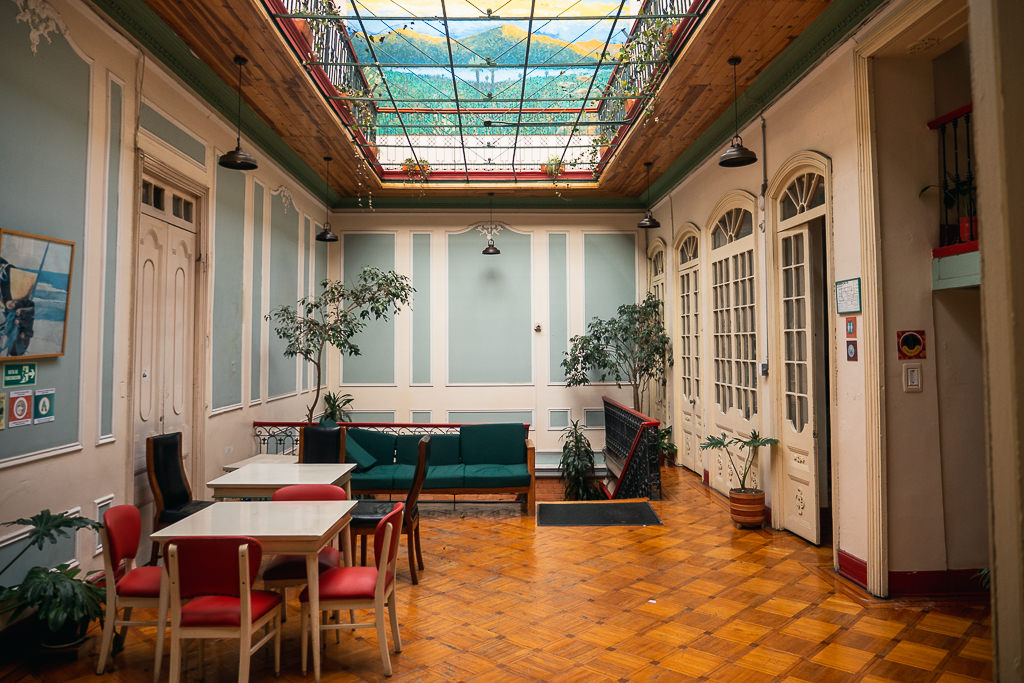
What are hostels like?
Back in my parents’ days, hostels had a reputation for being pretty grubby places, with no bed linen provided and barely a working shower.
The modern hostel scene is very different and many of them offer great amenities these days. Some have even gone more premium and are trying to compete with hotels. By checking review scores on Hostelworld, you can easily find the best hostels in your destination.
At a minimum, a hostel will provide you with:
- a bed in a dormitory or a basic room
- (shared) bathroom facilities
- free WiFi
The type of bed offered in dorms depends; many modern hostels have custom-built sleeping pods with USB chargers and individual reading lights. Basic hostels in adventure travel destinations may just have some metal frame bunk beds or mattresses on a bed made of recycled pallets.
Beyond this, hostels will try to make you feel at home. They might have a living room-style common room, kitchen facilities, computers, board games, a pool table, or other amenities.
At reception you can often sign up for group activities or tours, get your laundry done, get some help with bookings, or browse some travel guides. Some hostels have bicycles you can rent for the day, or offer language classes to travellers wanting to learn the local lingo. Sometimes there’s a bar where you can have drinks and meet other travellers.
Some hostels also provide a basic breakfast, though this is rarely anything more glamorous than toast with jam, fruit, and some coffee.
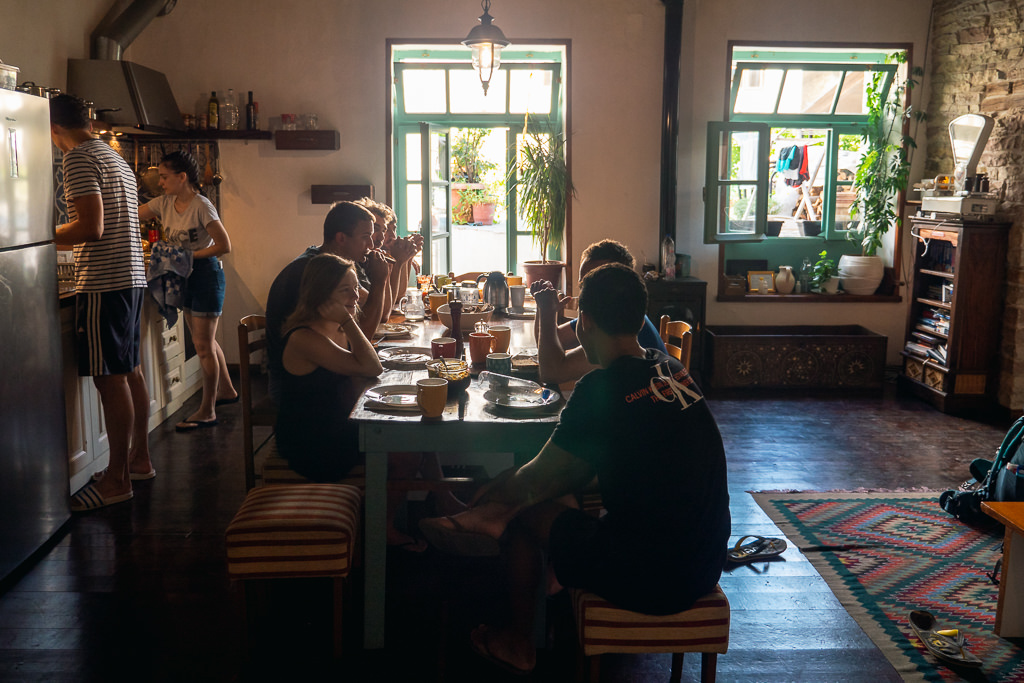
Do hostels provide bedding?
Definitely! Bedding is virtually always provided nowadays. I have stayed in hundreds of hostels around the world and this has never been a problem. Even in the remotest parts of the desolate Bolivian Andes, they’ll still give you sheets and a blanket. Don’t worry about your sleeping bag—you can leave it at home.
I’ve only heard of one hostel in Amsterdam that is ultra cheap and doesn’t provide any bedding. This is a very rare example, and I think partly they do it as a stunt to get people talking about how cheap it is to stay there.
It’s normal for hostels to include bedding. One difference from hotels is that they might sometimes ask you to take the linen and duvet to reception when you check out, so they can more easily collect and wash them.
Do hostels provide towels?
Only sometimes. Hostels in Western countries do often give you one, if not for free then on request for a few extra dollars or euros. If you stay in a private room in a hostel then that will usually include a towel, though dorm room guests often have to do without. In developing countries, towels are much less often included.
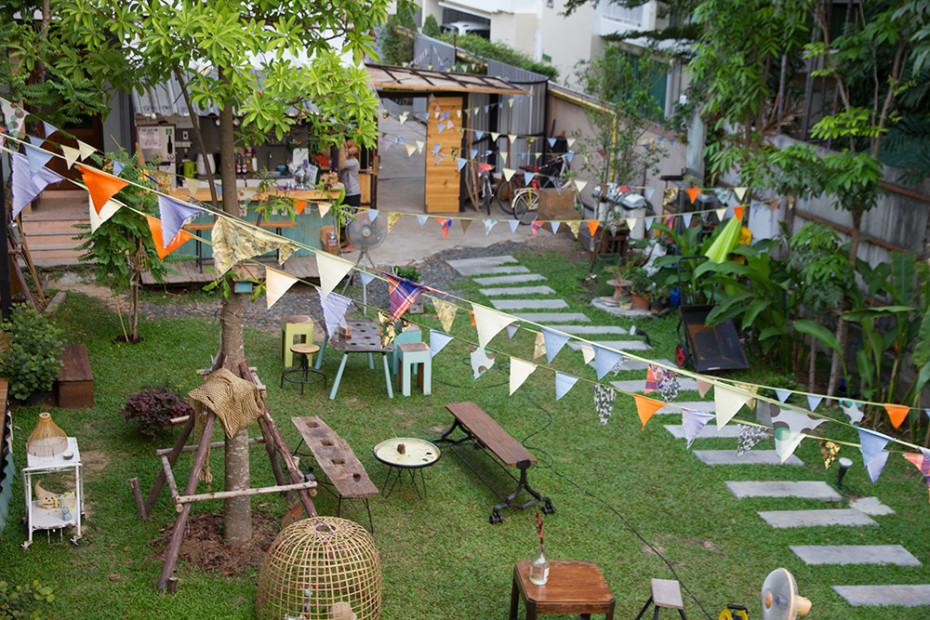
What should I pack for my hostel stay?
Only a couple of things. First, be sure to buy a lightweight microfibre travel towel. I guess you could also pack a normal towel, but this type of travel towel is easier to pack, lightweight, and dries much more quickly. Even if some hostels offer towels, it’s good to have a backup.
Bring a padlock so you can secure your belongings. Hostels often have lockers, especially for the dorms. It’s best to get a combination padlock so that you never need to worry about losing the key.
Consider packing some flip-flops, especially if you’re going to be using shared bathroom facilities. These do get cleaned every day, but you may still find it nice to have something on your feet.
Finally, bring earplugs. If there’s a snorer in your room (yeah, it does happen sometimes), you’ll be glad to have them.
Other than that, pack whatever you normally need for your travels.
How to pick the right hostels
Your best bet is always to check the reviews and listings on booking sites. Hostelworld is by far the biggest platform, having utterly usurped its competitors many years ago. But you can also find many hostels listed on Booking.com.
If you’re travelling around a country for a while, then word-of-mouth can also be a powerful way to find amazing hostels.
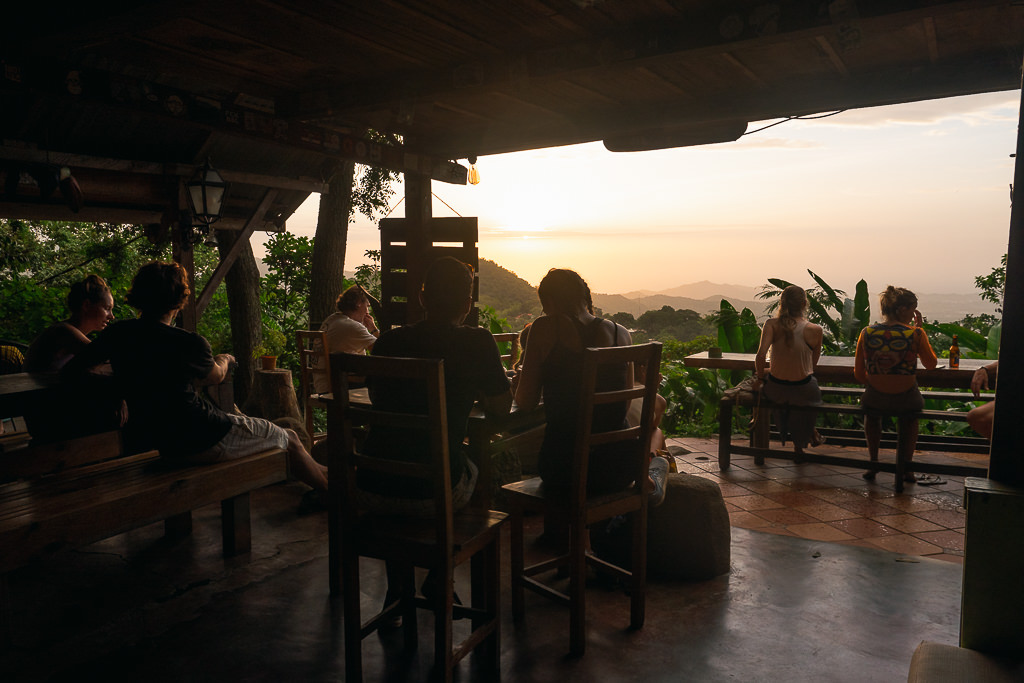
Check the user ratings on Hostelworld which are usually quite reliable. For me, anywhere above a 7.0 will be fine. Anywhere above 8.5 and it’s going to be amazing. Pay attention also to the individual ratings for Cleanliness, Location, and above all, Atmosphere.
Consider the hostel’s size. I personally prefer medium-sized hostels; big enough to be social, but small enough to be cozy. Sadly, sites like Hostelworld won’t directly tell you the size of a hostel, but you can guess from the number of rooms (select some distant future date to see the full availability). If there’s a choice from, say, 7 different rooms, it’s probably a nice-size hostel. If you get a list of 25 rooms, it’s a factory.
Keep an eye out for extras. Look for any special features that may appeal to you, such as free breakfast, a bar or rooftop patio, bicycle rental, outdoor pool, etc. In some rare cases, hostels offer daily family-style dinners that you can sign up for (often in more remote locations without restaurants). These hostels are amazing for meeting other travellers as it forces everyone at the same dinner table every night.
Always read the hostel and room descriptions. Every hostel may have different rules, so it’s important to find one that fits what you’re looking for. Do you want a party hostel or do you want a hostel with enforced quiet time? It can make or break your stay if you end up in a hostel with a different atmosphere than you were wanting.
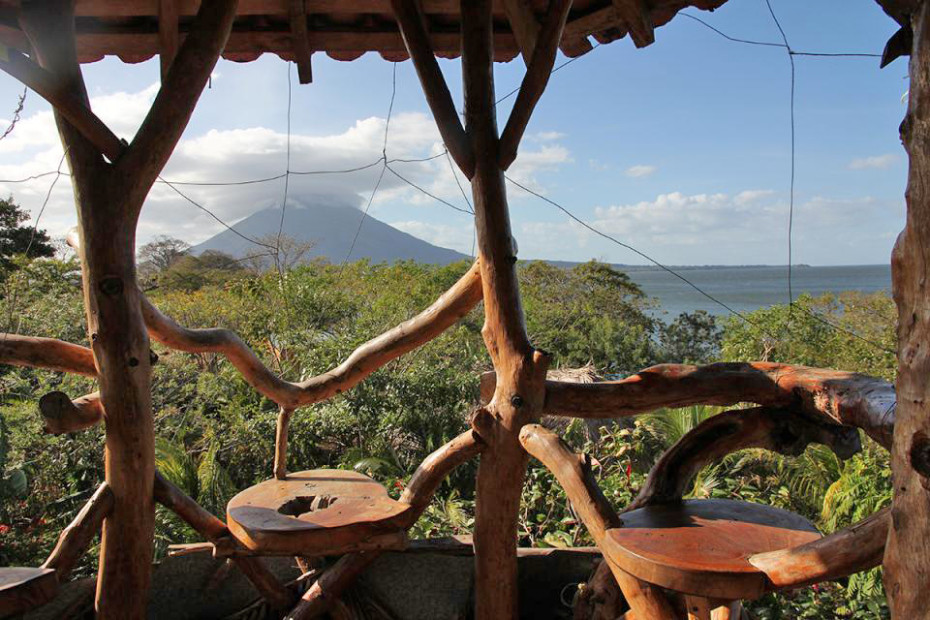
Are there age limits for hostels?
Yeah, sometimes. Certain hostels may be 18+ only, not wanting to deal with families. Others are all-ages and family-friendly. Some are up to around age 35 – 40 only. Most hostels don’t have an explicit age policy though.
I first stayed in a hostel when I was 16 on a trip to London. I’m now 39 and still stay in backpacker hostels regularly, though a bit less often and only in specific ones.
I absolutely avoid party hostels these days; you’ll recognize these easily as they will heavily promote their happy hour or have pictures of young partying travellers. I like hostels that have, for lack of a more specific term, a “traveller vibe”. (It’s hard to explain but travel in hostels a lot and you might know what I mean.)
It also depends on the destination. In certain countries or regions, hostels have much more of a mix of ages. In certain destinations that are especially popular with younger/newbie travelers, the average age may be noticeably lower.
If you’re an older traveler it does help a bit if you’ve stayed in hostels when you were younger. It’s not weird to stay in a hostel if you’re above a certain age, but it may be weird if you’re clueless about how hostels work.
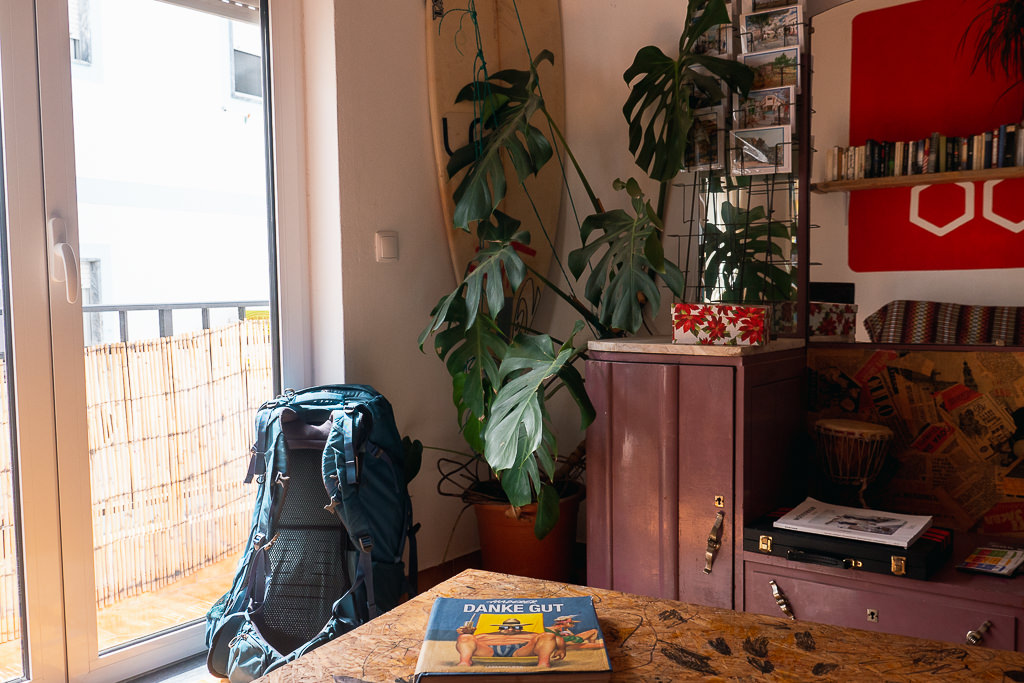
What’s it like staying in a hostel?
It depends! There are many kinds of hostels to suit the tastes of many kinds of travelers.
But there are some general trends in how hostels are set up and designed in different parts of the world.
This is generalizing a lot, but here’s how I’ve experienced hostels in different regions:
Europe: Chain hostels are well established and they’re not always so great. But Europe also has some of the world’s best and most award-winning independent hostels. I think the European backpacker hostels often hit just the spot by offering a cosy atmosphere and plenty of amenities. Prices are often in the €15 to €20 range for a dorm bed, though this can rise to €30 a night in places like London or Paris, or dip to around €10 in Eastern Europe or the Balkans. Quality is typically high and some top European hostels achieve ratings in the 9.5 – 10 range on Hostelworld.
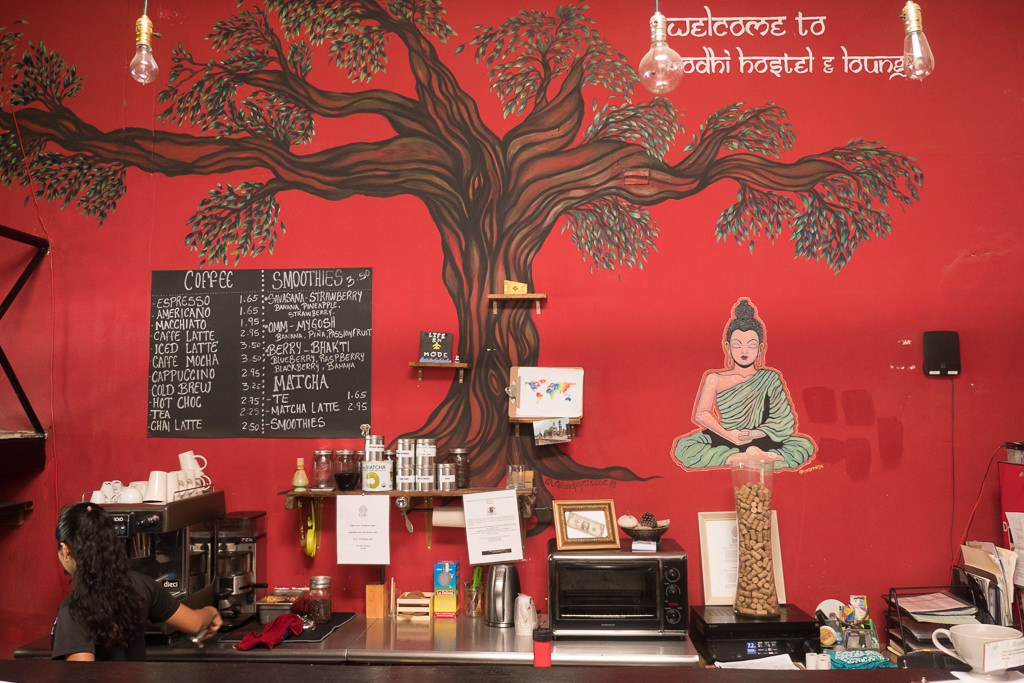
Southeast Asia and Latin America: I love the hostel vibe in tropical countries. In the larger cities, the hostels are often new and modern, though you’ll find more bohemian-style hostels in the countryside. Many beach- and surfer hostels are constructed from wood or bamboo and have many hammocks for you to chill. Prices can be as low as USD $5 a night (hi there, Cambodia) and might top out at around $15 to $20 a night in the bigger cities or the more touristy destinations.
United States: there’s no polite way to say this… hostels in America in general are not the best, in my opinion anyway. I am not saying that to be mean, just to set expectations. Many are of the lame ‘youth hostelling’ variety, while others try to be backpacker hostels but don’t quite get it, their common rooms somehow resembling chain coffee shops or lifeless airport lounges. These are not proper hostels, America! In a hostel in NYC I was once told off for — gasp — daring to drink a beer in the lounge. (I guess building codes or local laws can get in the way of having a normal hostel.)
Anyway, if your first hostel stay is in America, don’t assume European or Asian hostels will be exactly the same. I’m generalizing wildly though and there are some fantastic exceptions in some of the major cities in the US.
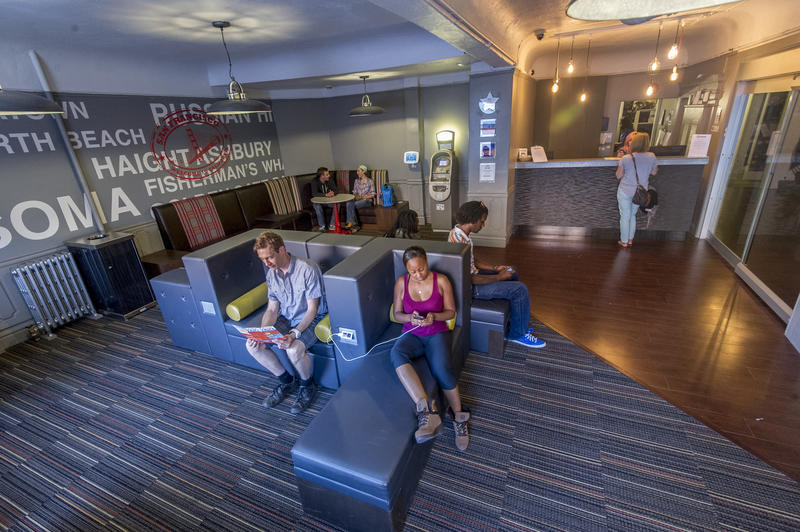
So you’ve arrived – now what?
Hostels may be cheaper than hotels, but with a lower price also comes higher responsibility. Since you’re sharing some of the spaces, it’s up to you to be a good guest.
Usually, the receptionist will give you a quick tour and tell you anything you need to know for your stay, including the hostel rules. Having good hostel etiquette and being respectful can make your stay better because everyone will be happy!
If there’s a kitchen, they’ll probably ask you to wash your own dishes. I know you just can’t wait to eat your backpacker’s meal of rice and chicken, but remember you’re in a shared space and someone may be waiting to use the pot you just cooked with. If there’s a fridge, you’ll have to label any food you want to keep.
If you stay in a dorm, be nice to your roommates. You don’t need to become best buds with everyone, but it’s nice to at least say hi and exchange names/nationalities.
Keep things tidy! Put things in lockers or chests if they are provided, otherwise keep your pile of stuff separate from other people’s stuff.
For the love of all, don’t turn on the lights in the middle of the night. No one likes that, ever! If you’re leaving early the next day, pack your stuff before you go to bed.
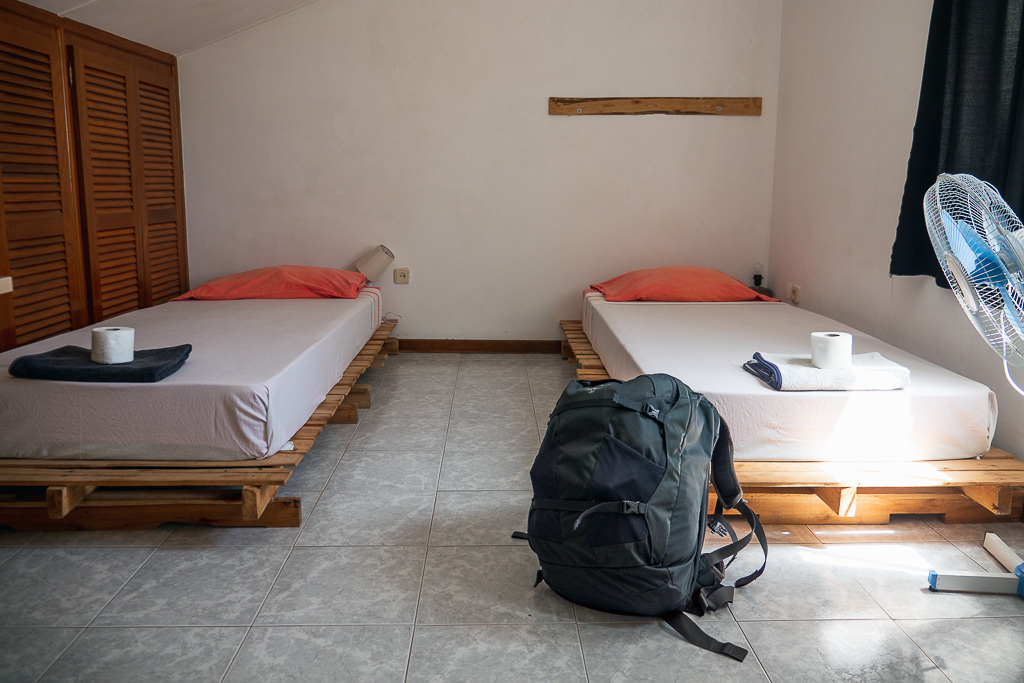
Are hostels safe?
Yes, generally speaking, hostels are incredibly safe. There is often a strong community spirit in hostels. The staff, as well as other travelers, all help to ensure a safe environment.
In terms of personal safety, there is little to worry about in a hostel, especially in any hostel with 24/7 reception (as they usually have). If you are a female solo traveler, know that many hostel dorms are mixed gender. If it makes you more comfortable for any reason, you can choose to stay in hostels that have female-only dorms.
As for the security of your belongings, don’t worry but don’t be naive either. Just use any lockers provided for anything that’s important to you. While thefts from outside are very rare — as hostels do have their own security — it’s not unknown for one dorm guest to steal from another. (Theft has happened to a few folks I’ve traveled with. But I only know of a couple of cases after many years of traveling in hostels.)
Consider bringing a power bank if you have one so you won’t need to leave your electronics charging on your bed. Instead, you can charge them via the power bank when inside a locker or inside your daypack while you’re sightseeing.
Final words on hostels
Hostels are not hotels, and that’s the great thing about them.
Treat a hostel as your home away from home. They’re meant to be fun and sociable places, and the best of them make you feel part of a big travel family. You can often get amazing travel tips from other guests, or at the very least from the hostel staff, and you may even be invited to join activities or go to places you may not have heard of before your trip.
Although you don’t have to be social — it’s fine if you’re just there to sleep and that’s it — you’ll still get the most out of hostels by not being a hermit. Don’t be shy; people in hostels fully expect you to say hi to them. If you want to chill, maybe grab a book from the book exchange and find yourself a comfy couch or hammock. Or if you’re in a social mood, go chat with other travellers in the common room.
One thing is for sure, though: hostels definitely aren’t the super basic forms of accommodation they once were. If you want to give hostels a try, look for one with premium facilities or a solid score, and see how it goes!
Some links may be affiliate links, meaning I may earn commission from products or services I recommend. For more, see site policies.
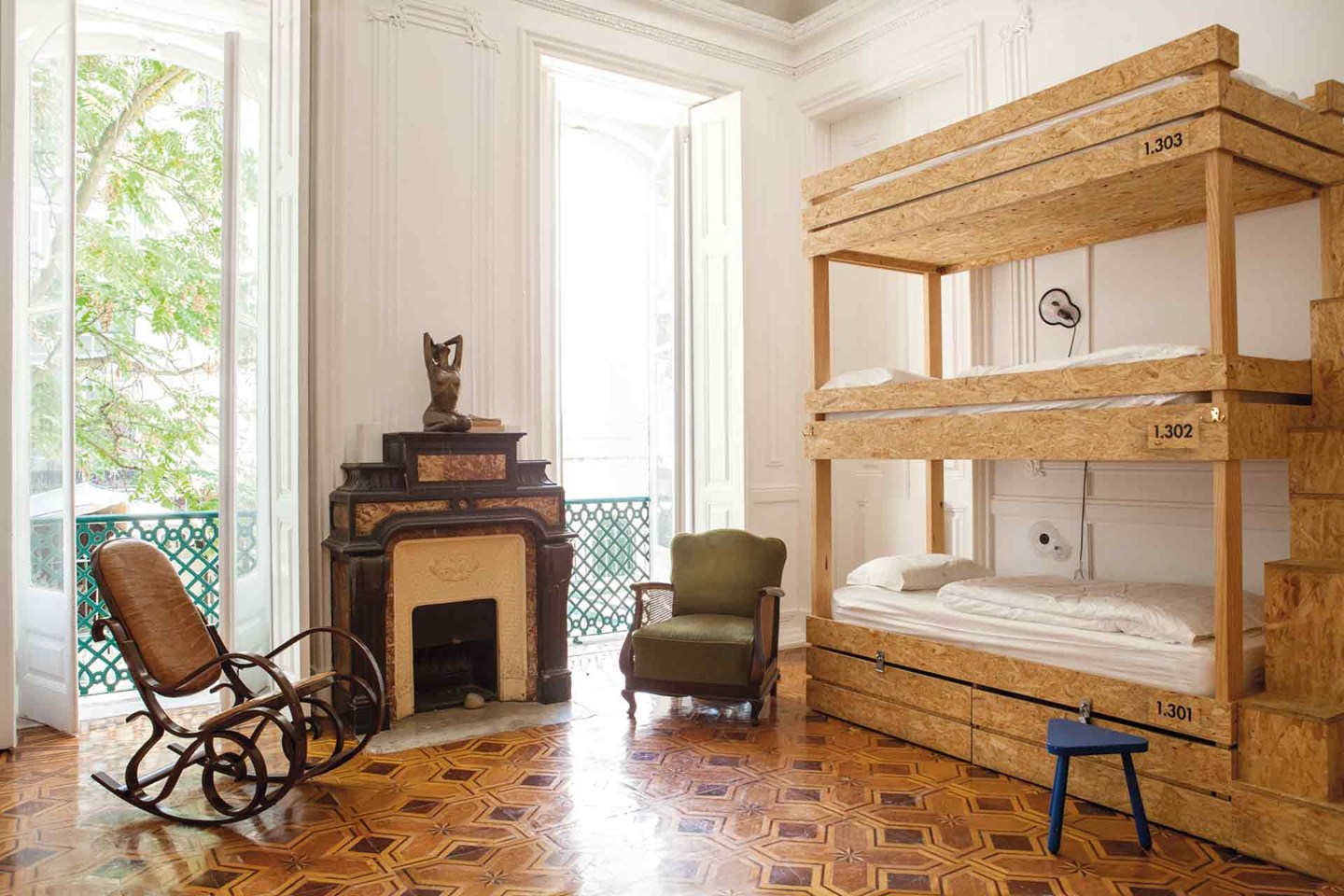






Whats the longest length of time you would stay in a hostel? I am a similar age as you, a couple years your junior.
Well, it all depends on the destination and how long I want to be there! Usually about 4 nights max, though when I traveled long term I’ve stayed for about 2 weeks in the same hostel.
I believe due to regulations in many countries 30 days is often the max length of stay allowed.
Can Sr Citizen 60+ age can stay in hostel. Is it advisable,?
Sure! I’ve met my share of 60+ age travelers in hostels. Try to choose quieter hostels based on their description. Some are very party-focused and mainly for young people, others are for any travelers. I’ve found that the atmosphere can depend on the country/region. For example, hostels in Australia seem to have mostly partying young people (e.g. teenage Brits on their first ever trip) while in South America there often many different ages, so I recommend just giving it a try.
One more question, all advice towards hostels say to wear flip flops in the shower, but it makes me thinks hotels and motels all have different people use them everyday but no one says wear flip flops in the shower, do hostels not clean them?
Yeah it’s normal for them to clean the showers every day. I think people just like the added sense of hygiene when using shared facilities. (I’m actually not so fussed myself!)
Please tell me why you are against the HI hostels and why you think the U.S. doesn’t “get” hostels. When in Australia I met a woman at an independent hostel and she moved to an HI hostel and thought it the Ritz of hostels. I would think that as a chain it had certain standards it would need to adhere to.
When I stayed in motels in the U.S. that chains provided a minimal standard because if it was a franchisee they could have the branding taken away if they didn’t and if it was corporate you could complain to management. Twice when I stayed at an independent motel, there was safety standards that were breached, one the deadbolt was not working (I had checked in and left my stuff and came back six hours later only to find that out, so didn’t think I could leave and left the chair under the door), a second was where the outlet for the refrigerator was across room with the stove in the middle so the cord had to dangle above the stove to plug it in and they had a TV in the second room that didn’t work (it was kind of a suite and they said the parents slept in the back room and the kids watched TV in the front so the second TV didn’t have to work!)
What do you mean about “youth hosteling” variety or coffee shop or airport lounge decor, I have been to hostels in Europe, Australia and don’t see that the furniture is any better or fancier, with the advent of the internet and smartphone, younger folks EVERYWHERE don’t engage as much socially as in the past.
I am glad that you have a place for comments, initially I found you because I was wondering why some hostels have a location where you are from restriction or like HI I believe the stay has to be a max of 3 days, didn’t know if it’s legal (do you know?) but perhaps if it’s a private property they can have any rule that they like or maybe they can as to being a hostel and not a motel or hotel.
I’ve just always felt the HI hostels (and many in the US) are a bit generic is all. I prefer non-chain hostels with more soul, where some independent owners had to work hard to make it more cozy and welcoming. It’s not really about the standards or how good the furniture is but just the atmosphere. Motels I think are a different story to hostels. We judge different types of accommodation by different criteria… and if you prefer chains or franchises that’s cool!
I’m not aware of any restrictions on a stay… can’t think of any reason why they would not want you to stay longer. I’ve never encountered such a rule anyway… only minimum stays occasionally (e.g. 2 nights minimum, or no 1-night stays during a weekend, but this is quite rare).
Hi,
I’ve just left school and had 2 amazing months in Thailand with one of my friends (who is half Thai), we stayed with her family for a bit and had lots of help with planning where to go etc from her family. I have just got back and have started planning my next trip, hopefully backpacking around South America. This time I will be travelling on my own (I’m 17 years old), do you have any suggestions or recommendations as to which countries are better for backpacking in South America (considering price, things to do, solo female traveller,etc)?
Thanks for any help,
Kathryn
Hey Kathryn. I think Ecuador and Peru can be good places to start. They’re cheap, a little easier, and there’s many travellers there. 🙂
Thanks a bunch! I’m planning my 3-month trip to Asia and your site is very helpful
Hi Marek,
I’m a 19 year old university student in the UK looking to go backpacking solo for a few weeks in the summer. The only thing is I am slightly concerned that because of my age I might not ‘fit in’. I’m easy going and very happy to mix with people of all ages and backgrounds, but are there certain countries/backpacking areas that would be more suited to me compared to others? I’m really keen on going to Guatemala, but I don’t want to end up with a tame group of honeymooners (for example!). I’m looking to have a good time -with a bit of partying- but mainly just want to get out there and explore whilst meeting new people and staying in some cool hostels.
Thanks for any advice- love your blog by the way, it’s been very helpful and inspirational!
Rosie
Hey Rosie. If you travel as a backpacker and stay mainly in hostels then you’re going to find likeminded people wherever you go. There are admittedly differences between countries/regions… Thailand, Mexico (in the Yucatan) and Australia for example see way more travellers who are in their late teens or early twenties. Some of the younger people there are on basically a ‘party holiday’ though. Guatemala is more about having a cool adventurous trip, but you can have fun in the evenings as well (plenty of bars and social/fun hostels). When I was in Guatamala I met a few people of a similar age as you, as well as many travellers in their mid-twenties and up. You won’t be stuck with tame honeymooners. 🙂
Thanks so much for your help and reassurance! Guatemala seems like a good choice then 🙂
hi how was your trip?